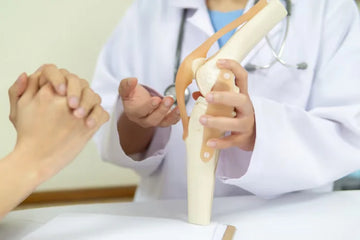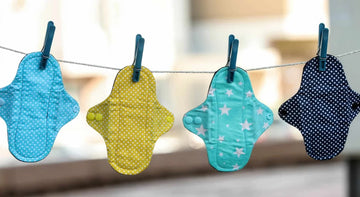Bone health and Menstrual cycle are important for women’s health because bones protect organs, structure the body, and help with motion. Strong bones are critical for stopping fractures and situations including osteoporosis. Bone density, or the quantity of minerals in bones, is affected by several elements, including diet, exercise, and hormones. One of the most crucial hormonal factors is the menstrual cycle, which at once influences bone health. Hormonal fluctuations throughout the cycle, especially estrogen and progesterone, can affect bone density and strengthen bones. So, women must realize how the menstrual cycle affects bone health, which is critical for keeping bone power and stopping problems like osteoporosis, especially during critical times like menopause or with conditions like PCOS.
The Relationship Between Your Bone Health and Menstrual Cycle
1. Hormonal Changes
Estrogen and progesterone are important hormones that manipulate bone formation and reworking. Estrogen facilitates reduced bone loss by slowing bone breakdown and maintaining bone density. However, hormonal fluctuations during the menstrual cycle can briefly increase bone breakdown. Maintaining healthy hormonal stability is vital for lengthy-term bone strength. Regular menstruation and early control of hormonal imbalances assist in defending bone health and menstrual cycle, preventing future conditions such as osteoporosis, and maintaining bone density throughout life.
2. Menstrual Irregularities
Menstrual dysfunction affects bone density, such as delayed menstruation or abnormal menstrual cycles. Delaying menstruation reduces lifelong exposure to estrogen, increasing the danger of osteoporosis and Weakened bones. A regular menstrual cycle facilitates keeping proper hormonal balance, resulting in continued bone regeneration. Preventing menstrual irregularities through lifestyle modifications, nutrition, or medical treatment can improve bone health and menstrual cycle and reduce the risk of long-term complications associated with bone density.
3. Bone Loss During Menopause
Hormonal changes, specifically the decreased hormone estrogen, will arise throughout menopause. Finally, rapid bone loss takes place. This loss peaks one year before and two years after the last menstrual period, which increases the risk of osteoporosis. Although bone loss slows after menopause, it doesn't stop in any respect. Women must take care of their bone health and menstrual cycle at some point in this period and consider eating calcium-rich foods. Vitamin D supplements and weight-bearing physical activities are recommended to maintain bone strength and prevent fractures.
4. Number of Menstrual Cycles
A higher number of lifetime menstrual cycles is associated with increased bone density, particularly within the lumbar spine. This is because of long-term exposure to protective hormones together with estrogen. However, this advantage diminishes when adjusting to early menstruation, which is an increasing number of essential in bone energy. Regularly assisting early menstruation with nutrition and health care helps keep bones strong throughout life.
5. Oral Contraceptives
Birth control pills include estrogen and progesterone hormones, which could vary hormones and reduce bone resorption. This protective impact may additionally assist in maintaining bone density in women, particularly those with irregular menstrual cycles. However, individual responses range and lengthy-term use requires clinical steering. Women's use of start manipulation options ought to also recognize the importance of preserving a wholesome lifestyle to maximize the advantages for bone health.
6. Low Bone Density and Osteoporosis
Low bone density results in osteoporosis, which reasons vulnerable bones and increases the fracture hazard. When bones become fragile and porous, balanced vitamin D and calcium are added to the diet, regular weight workouts are needed, and menstrual health is addressed to avoid low bone density. Continuous care is important to strengthen bones and decrease the danger of osteoporosis in the future.
Tips for Supporting Bone Health And Menstrual Cycle
1. Eat Calcium-Rich Foods
Calcium is vital to preserve strong bones. People consume meals like milk products and green leafy vegetables, which help to strengthen bones. Having a habit of a weight-reduction plan with excessive calcium intake also makes positive that your bones turn out to be strong, specifically as you become old and experience hormonal changes. This is crucial for preventing osteoporosis and maintaining bone density throughout life.
2. Increase Vitamin D Levels
Vitamin D is critical for calcium absorption and bone formation. Exposure to sunlight is an organic source, but dietary foods and enriched meals can also offer high levels. Vitamin D complements the body’s capability to take in calcium, keeping bones stronger and healthier. Maintaining adequate nutrient D is vital throughout menopause and for those vulnerable to bone density loss because it helps with long-term bone health.
3. Participate in Strengthening Activities
Strength-training activities, which include on-foot, jogging, and resistance training, stimulate bone growth and enhance bone energy. These activities practice strain on bones, which promotes bone-forming cells and allows bone density to be maintained or increased. Regular physical activities help balance and muscle power, reducing the risk of falls and fractures. Incorporating weight-bearing physical workouts into your routine can prevent bone loss and promote ordinary bone health.
4. Limit Caffeine and Alcohol
Large quantities of caffeine and alcohol can weaken bones by lowering calcium levels and disturbing bone metabolism. Increased caffeine intake is associated with decreased bone density, particularly in women. Alcohol also reduces calcium absorption and impacts hormones that control bone health. Limiting these substances helps improve bone health. This ensures calcium and crucial nutrients can be used appropriately to keep bones strong.
5. Tracking Menstrual Health
The menstrual cycle is an essential indicator of hormonal balance, directly affecting bone energy. Irregular or missed periods might also signify a hormonal imbalance, lowering bone density and increasing the risk of osteoporosis. Tracking your menstrual health allows you to become aware of hormonal issues early on, which could affect bone strength. Maintaining your menstrual health with balanced vitamins and hospital treatment can help maintain long-term bone health and prevent headaches related to bone loss.
Conclusion
Bone health and menstrual cycle are closely connected to the menstrual cycle and hormonal changes, mainly estrogen and progesterone, which affect bone density at each level. A normal menstrual cycle helps sturdy bones, while hormonal imbalances like those in PCOS or menopause can weaken bones and raise the danger of osteoporosis. So, to get a healthy bone lifetime, women must focus on hormones, have a balanced diet, consume calcium and nutrition D drugs, and exercise frequently. So, everyone must understand the relationship between healthy bones and the menstrual cycle to protect bone density and maintain long-term bone strength activity. This helps reduce the risk of fractures and other bone-related issues over time.
FAQ’s
What Is The Relationship Between Bones And Hormones?
Hormones like estrogen, progesterone, and growth hormone help maintain strong bones by balancing bone building and breakdown. When hormones are unbalanced, bones can weaken, raising the risk of osteoporosis and fractures.
Is Milk Good For Your Bones?
Yes, milk is good for bones. It is high in calcium and often has added vitamin D, which is essential for strong bones. These nutrients help prevent bone loss and protect against osteoporosis.
What Hormonal Status Influences Bone Health?
Hormones like estrogen, testosterone, parathyroid hormone, and cortisol significantly impact bone health. Low estrogen during menopause or hormonal imbalances in conditions like PCOS can weaken bones, while balanced hormones help keep bones strong.
Why Do Bones Need Rest To Grow?
Bones need rest to repair and grow stronger. Exercise stresses bones, helping them strengthen, but rest is important to allow bones to rebuild and avoid overuse injuries.
Which One Of The Following Foods Is Best For Bone Health and Menstrual Cycle?
Leafy greens like kale or spinach are excellent for Bone Health and Menstrual Cycle. They are rich in calcium, vitamin K, and magnesium, which support bone density and overall strength, making them a valuable addition to a bone-healthy diet.





